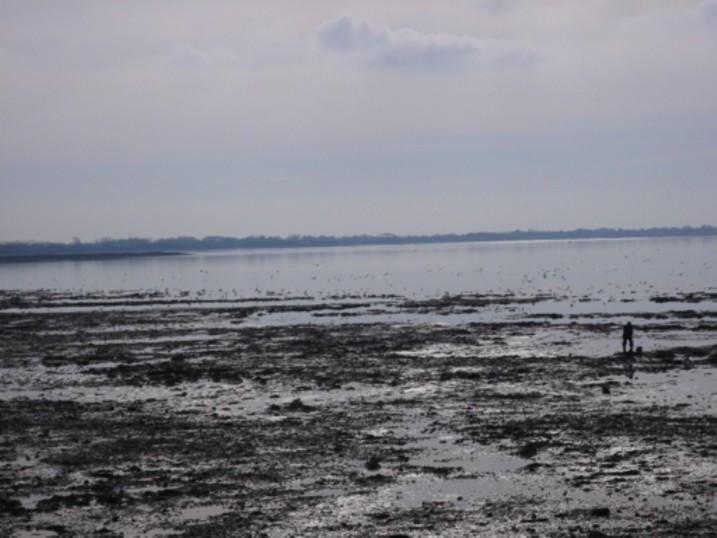|
|
|
Did you know?
Sea anglers in the U.K use nearly nine hundred tons of worms each year
|
Unfortunately there
is much conjecture about the rights and wrongs of commercial bait digging,
sadly large groups of diggers marauding through Chichester harbour and the Hamble river in the
late eighties and early nineties gave us all a bad name which sticks to
this day.
|
|
Did you know?
Commercial bait diggers supply over six hundred tons of worms to U.K anglers
yearly.
|
Today with the demise
of large-scale commercial bait suppliers this no longer happens. The numbers
of people digging now are seventy-five percent less than they were fifteen
years ago. This is due to a number of factors. Anglers now use a much bigger
diversification of baits. Boat anglers tend to use very little worm baits
these days due in the main to the demise of inshore plaice fishing.
|
|
|
Even so commercial
diggers still provide over six hundred tons of worms for the estimated
one -million sea anglers each year. This amounts to just one and one third
pounds of bait per angler. By contrast the country's two bait farms provide
thirty-five tons of worms each year or one and a quarter ounces of bait
per angler. A further (approximately) ten tons of worms are imported from
Ireland and Holland each year with the Dutch imports being mainly restricted
to the Southeast.
|
|
|
Bait diggers turn
over (in much the same way a gardener might dig over his allotment) less
than nought point one percent of the mudflats in any of the harbours in
the Solent area. We believe that this turning over of the mud does no more
damage than forking over your garden.
|
|
Did you know?
In the Solent area commercial bait diggers dig up less than 0.1% of any
given harbour
|
One of the effects
of bait digging is to create small pools on the mudflats. In these pools
weed and other marine debris collects this provides cover for a myriad
of small crustaceans and small fish and this in turn provides feed for
sea birds which would go some way to explaining the steady increase of
birds in our harbours. It is a well known fact that the sustainability
of any wildlife is always directly linked to the availability of food.
Another benefiting factor is that we are always amongst the first to spot
pollution and alert the authorities because we are always on the scene
so to speak.
|
|
|
One has only to visit
any well dug area in our harbours to see this for themselves.
 Birds
feeding at Budds farm langstone harbour the Solent's heaviest dug bait
bed. Note the birds are ignoring the bait digger in the photograph Birds
feeding at Budds farm langstone harbour the Solent's heaviest dug bait
bed. Note the birds are ignoring the bait digger in the photograph |
|
|
King ragworms account
for ninety-nine percent of all the worms dug in our area with lugworms
accounting for the rest. We would estimate that in the thirty or
so years our current members have been digging, worm populations locally
are at least two hundred percent greater than they were in the early seventies.
|
|
|
One of the most compelling
reasons in our opinion for retaining commercial digging is the safety factor.
The mudflats are not the safest place to be even for the most experienced
as we have seen in the past with diggers lost in the fog, stuck in underground
springs, trapped in quick mud etc. The fact that we dig mostly in pairs
has saved at least three lives that we know of. If anglers are forced to
dig their own bait it will only be a matter of time before one of them
gets trapped and drowned.
|
|
|
Without commercial
bait diggers to supply what is essentially the mainstay bait of sea angling
it is likely that sea angling as a shore based sport would collapse; given
that sea angling generates over one billion pounds into the economy according
to official government figures it goes without saying that this would lead
to thousands of job losses in this sector.
|
| Did you know that government legislation forbids local government and conservancies from prohibiting commercial bait digging. (The seashore bye laws acts of 1907 and 1996). | Without commercial diggers disabled people, senior citizens, juniors and Lady anglers would not be able to enjoy their sport. |